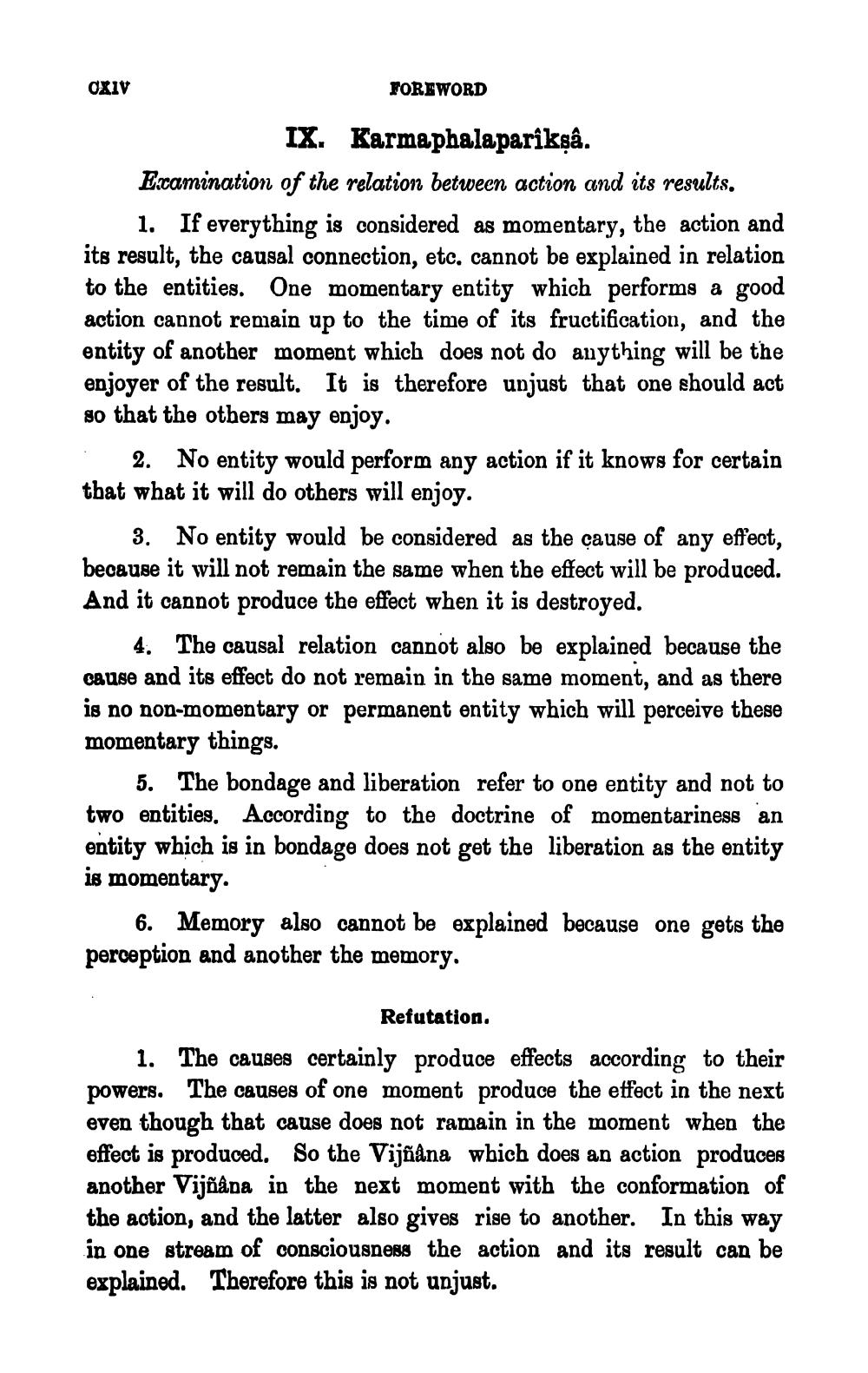________________
OXIV
FOREWORD
IX. Karmaphalaparikşa. E.camination of the relation between action and its results.
1. If everything is considered as momentary, the action and its result, the causal connection, etc. cannot be explained in relation to the entities. One momentary entity which performs a good action cannot remain up to the time of its fructification, and the entity of another moment which does not do anything will be the enjoyer of the result. It is therefore unjust that one should act so that the others may enjoy.
2. No entity would perform any action if it knows for certain that what it will do others will enjoy.
3. No entity would be considered as the cause of any effect, because it will not remain the same when the effect will be produced. And it cannot produce the effect when it is destroyed.
4. The causal relation cannot also be explained because the cause and its effect do not remain in the same moment, and as there is no non-momentary or permanent entity which will perceive these momentary things.
5. The bondage and liberation refer to one entity and not to two entities. According to the doctrine of momentariness an entity which is in bondage does not get the liberation as the entity is momentary.
6. Memory also cannot be explained because one gets the perception and another the memory.
Refutation. 1. The causes certainly produce effects according to their powers. The causes of one moment produce the effect in the next even though that cause does not ramain in the moment when the effect is produced. So the Vijñâna which does an action produces another Vijñana in the next moment with the conformation of the action, and the latter also gives rise to another. In this way in one stream of consciousness the action and its result can be explained. Therefore this is not unjust.




